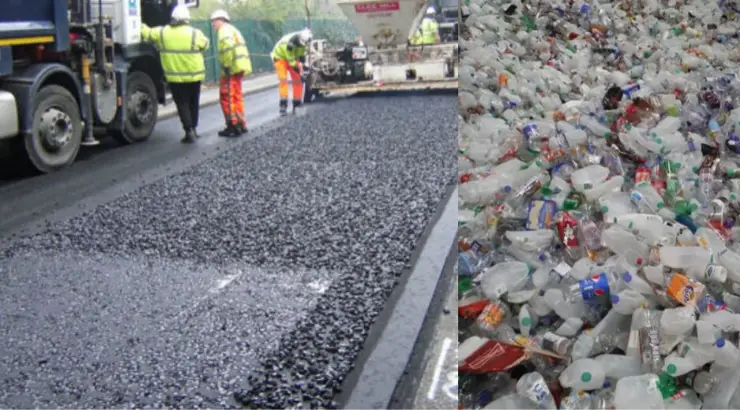Environment
This Company is Using Plastic Waste to Make Roads That Are 60% Stronger Than Traditional Ones
Plastic waste is one of the biggest threats to humanity, animals, and the environment.

(TMU) — The first plastic created by Leo Hendrik Baekeland in 1907 was based on synthetic polymer made from phenol and formaldehyde. Since then plastic has been used to create just about anything you could think of. It is cheap to manufacture and affordable to buy and replace. It is also used for almost all products we use and throw away without a second thought.
As populations grew, the use of plastics grew as did plastic waste—one of the biggest threats to humanity, animals, and the environment.
While scientist and experts try to find solutions to non-recyclable plastic waste, we’re running out of landfill sites and continue to poison our air by incinerating plastic waste and choking our oceans. Thankfully forward thinking companies are finding ways of reusing plastic waste while many others are focusing on finding biodegradable alternatives to replace plastics altogether.
As an example of recycling waste plastic, UK company MacRebur has developed a product by recycling plastic bottles to improve the quality, durability, and cost of asphalt roads.
While working with a charity in southern India that helps people working on landfill sites find items for possible re-use for selling or reusing, MacRebur CEO Toby McCartney was intrigued when he saw “pickers” using retrieved plastics to fill potholes. They melted the bottles onto the road by pouring diesel on it and setting it alight, resulting in an effective, quick, and low cost road repair.
From that basic idea the MacRebur team worked on finding the ideal mix of waste plastics to granulate and add into the making of asphalt roads. After years of tests and trials all over the world, MacRebur created three formulas of waste plastic and asphalt, all of which meet various worldwide road standards and have been rigorously tested against standard asphalt, bitumen, and Polymer Modified Bitumen.
MacRebur asphalt not only boosts the lifespan of roads, it also has a smaller carbon footprint by the reduced amount of fossil fuel used in the manufacturing process.
McCartney said:
“We went through about five-to-six hundred different designs of different polymers that we were mixing in before we found one that actually worked.”
Only plastic labelled as waste—which includes black plastic—is used and it must melt at a specific temperature. Roads made with the plastic additive should last longer, be more flexible, and withstand damage from heat, cold, and everyday use better.
According to McCartney, plastic roads are 60% stronger than traditional roads and lab tests project they may last up to three times longer. Of course, only the test of time will determine if they actually meet the estimated lifespan.
McCartney added:
“We are wanting to solve two world problems. On one side we call it the waste plastic epidemic, and on the other side the poor quality of roads that we have to drive on today.”
The MacRebur mixture is also suitable for motorways, airport runways, race tracks, and car parks.
By Jade Small | Creative Commons | TheMindUnleashed.com
Typos, corrections and/or news tips? Email us at Contact@TheMindUnleashed.com
